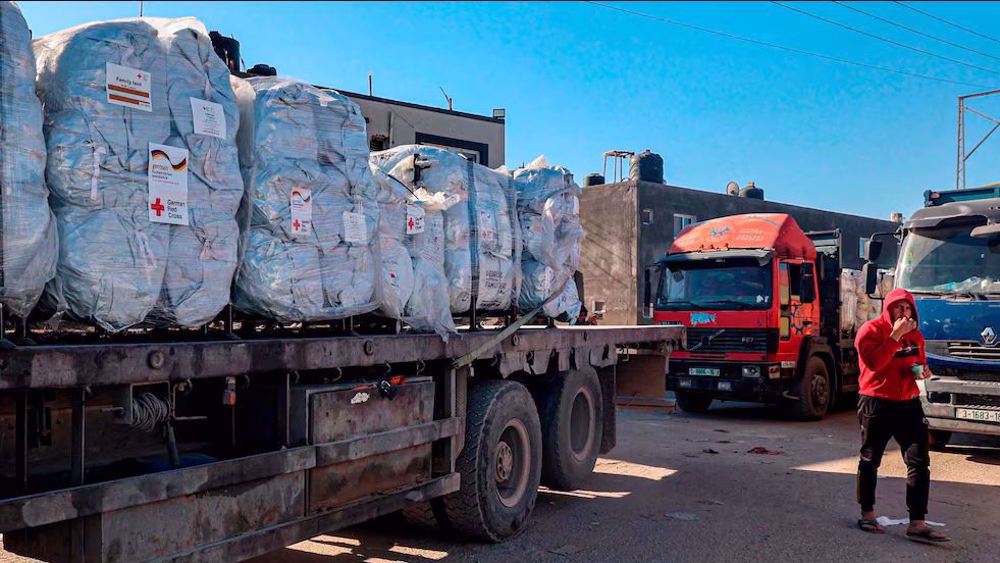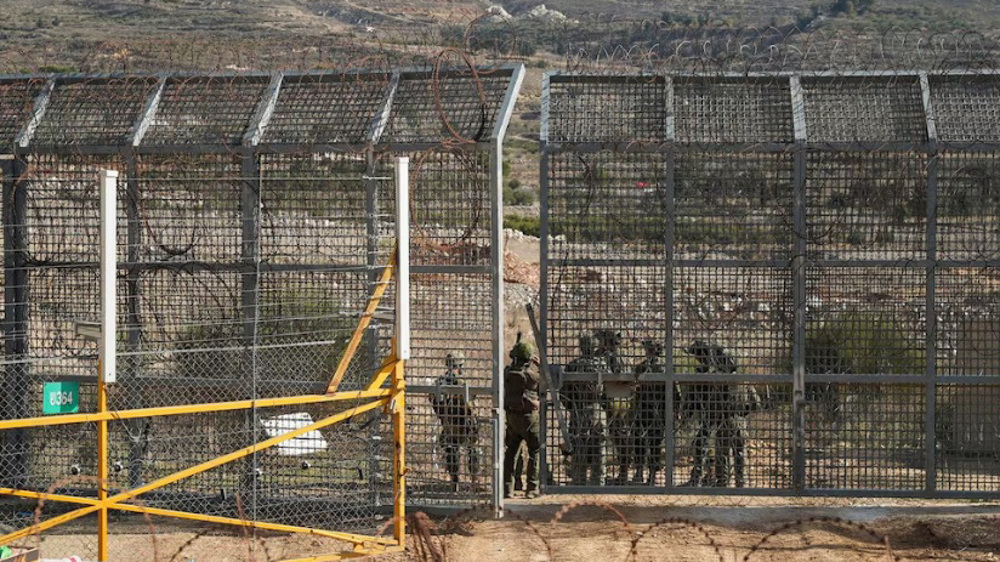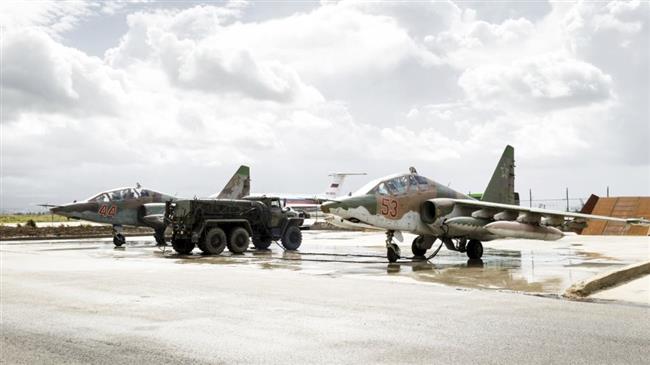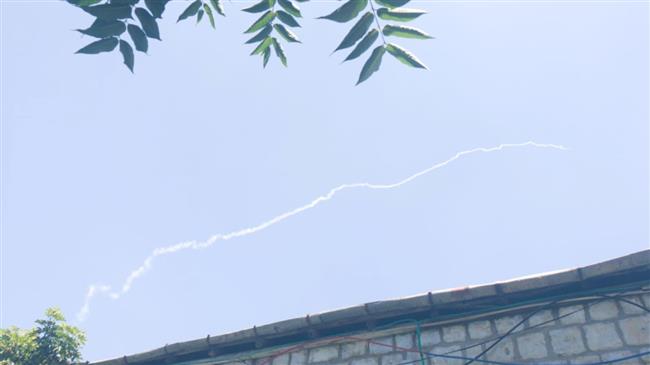Israel deploys more artillery, armored reinforcements in occupied Golan
Israel has beefed up its military presence in the occupied Golan Heights by deploying additional tanks and cannons in the vicinity of the Syrian border, cautioning Damascus to keep its forces away from the frontier as Syrian troops continue sweeping militant-held areas over the border.
In a statement released on Sunday, the Israeli military said that it had deployed artillery and armored reinforcements to the area, saying that the move was the result of a situation assessment “in light of developments on the Syrian Golan Heights.”
The statement also claimed that the Israeli military would adhere to its “non-involvement principle” regarding the Arab country. Tel Aviv, the statement added, would also continue to respond “decisively” to any infringement upon the Israeli regime and settlers in the occupied Palestinian territories.
On Friday, Israel's military said it had mounted a nighttime operation across the armistice line with Syria.
Syrian government troops have managed to liberate a string of towns and villages in southern and southwestern regions of the country from the clutches of militant outfits in recent weeks.
Syria, which has been gripped by foreign-backed militancy since March 2011, has time and again said that the Israeli regime and its Western and regional allies have been aiding Takfiri terrorist groups.
The Daesh Takfiri terrorist group, which once held large swathes of land in Syria, is no longer in control of any urban center. Following its crushing defeat against Syrian government forces late last year, Daesh is only active through its remnants, sparsely based in some rural areas. Other Takfiri outfits are either significantly weakened or increasingly losing ground to the advancing government troops.
The Syrian government also strongly seeks to regain its share of the mountainous plateau of the Golan Heights from the Israeli regime, which waged a full-scale war against Arab territories in 1967, occupying a large swathe of the Syrian Golan Heights. It annexed that territory in 1981, a move never recognized by the international community.
Six years later, another war, known as the Arab-Israel War or the Yom Kippur War, broke out between the Israeli regime and a coalition of Arab states led by Egypt and Syria.
In 1974, however, a United Nations-brokered ceasefire came into force, according to which the Israeli regime and the Syrian government agreed to separate their troops, creating a buffer zone patrolled by the UN Disengagement and Observer Force (UNDOF).
Earlier in the day, Israeli Prime Minister Benjamin Netanyahu, alluding to the so-called truce, told the Israeli cabinet that “we will demand strict adherence to the 1974 disengagement deals with the Syrian army.” He also said that he was in constant contact with Washington and Moscow on the matter.
Over the past few years, Israel has frequently attacked military targets in Syria in what is considered an attempt to prop up terrorist groups that have been suffering heavy defeats against Syrian government forces. It has also been providing weapons to anti-Damascus militants as well as medical treatment to the Takfiri elements wounded in Syria.
Back on May 10, Israel conducted what it called its most intensive airstrikes on Syria in decades. According to Russia's Defense Ministry, Israel had used 28 warplanes in its airstrikes on Syria and fired 70 missiles. Both Damascus and Moscow said that the Syrian army managed to shoot down over half of the missiles.
The Tel Aviv regime, at the time, claimed that its assault was a response to a barrage of 20 rockets fired from Syria at Israeli military outposts in Golan.
Tel Aviv tells Damascus Israeli forces will remain in occupied territory: Report
Dec. 22: ‘Axis of Resistance’ operations against Israeli occupation
‘Abhorrent’: Oxfam says only 12 trucks delivered aid in North Gaza since Oct.
VIDEO | Leader receives religious eulogists on Hazrat Fatima birth anniv.
Pope Francis slams Israel’s ‘machine-gunning’ of Gaza children
US hostage-taking of Iranian nationals violation of intl. law: Deputy FM
VIDEO | Carol Singers for Palestine on London’s Parliament Square
Ansarullah says ‘Israeli terrorists’ incapable of confronting Yemen, warns of secret weapons
















 This makes it easy to access the Press TV website
This makes it easy to access the Press TV website